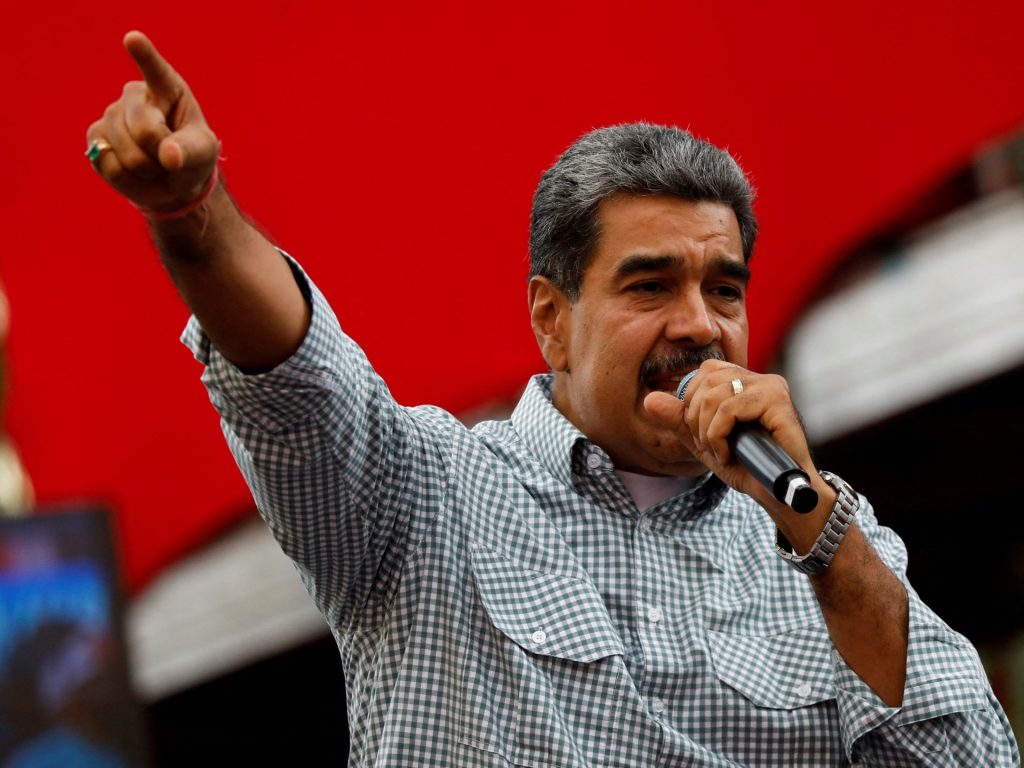The Voluntad Popular party is blaming the Maduro government for the death of co-founder Edwin Santos. Santos, a Venezuelan opposition leader, was found dead after being taken into state custody, according to his political party. Voluntad Popular, a centre-left party that opposes President Nicolas Maduro’s government, stated that Santos had been detained by state security services two days earlier while on his way to the community of El Pinal in Tachira state. The party blamed the Maduro regime for Santos’s death, calling it a clear act of political retaliation. Exiled opposition leader Leopoldo Lopez also stated that there was no doubt that Santos’s death was a political crime, and described Santos as an important activist who spoke out for his community.
Images of Santos’s body were posted online, and former Venezuelan ambassador to the US, Carlos Vecchio, indicated that there were signs that Santos had been tortured and dumped on the roadside where he was found. This incident is part of a broader crackdown on opposition voices in Venezuela, particularly following Maduro’s disputed election win in late June. In the aftermath of the election, Venezuela’s national guard, police force, and armed groups known as “colectivos” were responsible for the deaths of 23 people during protests, according to a report by Human Rights Watch. Maduro’s opposition challenger, Edmundo Gonzalez, had to flee to Spain after an arrest warrant was issued for him. Despite these challenges, there are ongoing efforts by opposition leaders within and outside Venezuela to continue the struggle for political change and the respect of human rights in the country.
The Voluntad Popular party has described the death of Edwin Santos as a continuation of the policies of repression, persecution, and murder by the Maduro regime. The party believes that Santos’s murder was a political crime and a deliberate act of retaliation by the government. Exiled opposition leader Leopoldo Lopez also stated that there was no doubt that Santos was murdered due to his political activities. The party emphasized the importance of Santos as an activist and leader who advocated for his community and leaves behind a wife and two children. Former Venezuelan ambassador Carlos Vecchio indicated that there were signs of torture on Santos’s body, suggesting a brutal treatment before his death.
The crackdown on opposition voices in Venezuela has intensified following Maduro’s election victory, which was marred by allegations of fraud. The post-election period saw increased violence against protesters and opposition leaders. Human Rights Watch reported that 23 people were killed by security forces and armed groups during protests in the aftermath of the election. The situation has prompted opposition leaders like Edmundo Gonzalez to flee the country to seek refuge abroad. Despite these challenges, there are ongoing efforts by the international community and Venezuelan opposition leaders to highlight the human rights violations and political repression in Venezuela. The European Union recently awarded its top human rights prize to Gonzalez and fellow opposition leader Maria Corina Machado, recognizing their efforts to promote democracy and respect for human rights in Venezuela.
Opposition leaders like Edmundo Gonzalez have vowed to continue the struggle for political change and human rights in Venezuela, despite facing threats and persecution from the Maduro regime. Gonzalez stated that the regime persists in blocking political change and committing human rights violations and crimes against humanity. He called for unity among democrats, both within and outside Venezuela, to ensure that the Venezuelan people’s sovereign mandate is respected. The ongoing repression and violence in Venezuela have drawn international condemnation and calls for accountability for the human rights abuses committed by the Maduro regime. The death of Edwin Santos serves as a tragic reminder of the risks faced by those who speak out against the government and advocate for democracy and human rights in Venezuela.















